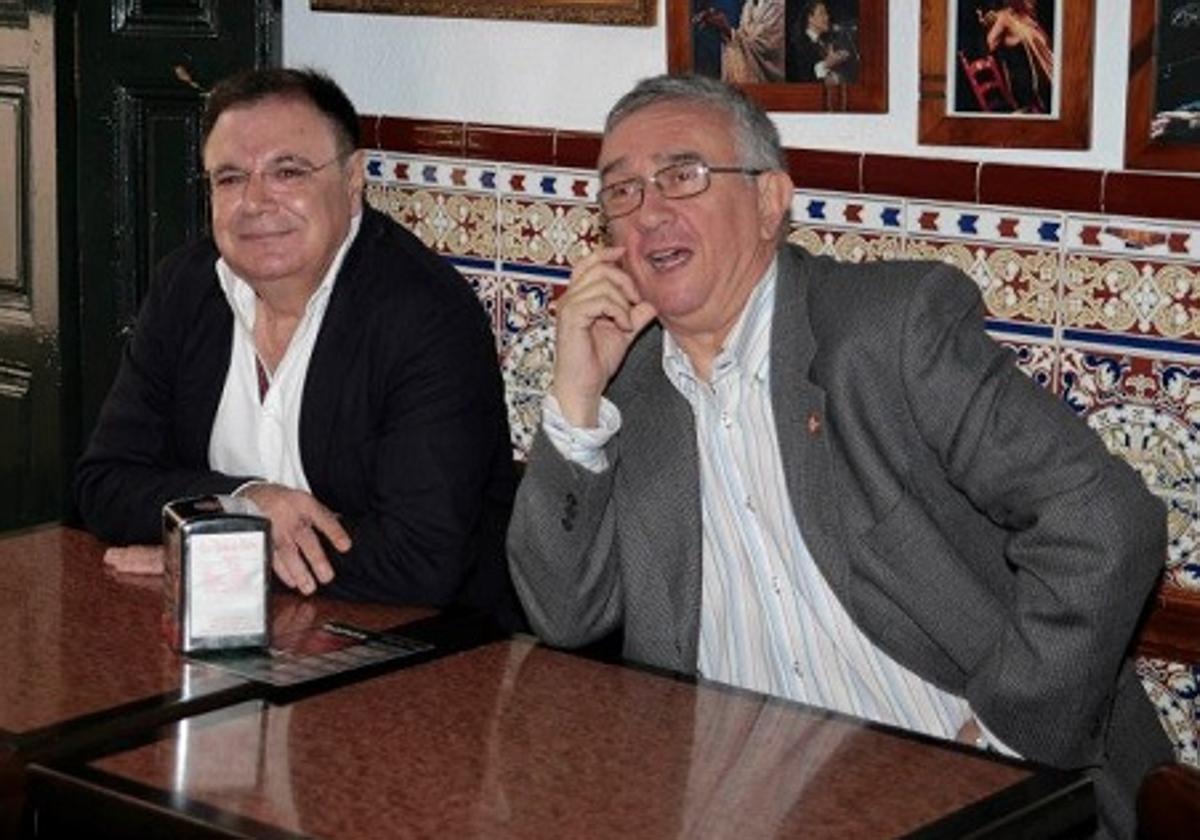How the future of Almeria changed in 1990
When a journalist from IDEAL and a councillor from the opposition Partido Popular political party dared to dream that the city could host the Mediterranean Games in 2005, they drafted a proposal on a paper napkin in a bar over a beer and tapa, which was unanimously approved by the city hall on 10 July
José María Granados
Almería
Monday, 30 June 2025, 10:01
The Mediterranean Games took place in Almeria in 2005 and this month the city has been celebrating the 20th anniversary of 'Almeria 2005'. It was a decisive moment in the fortune and future of Andalucía's easternmost province.
However, the journey was long and the initial proposal goes back to 1990, when Spain was gripped with the excitement of Barcelona's forthcoming Olympics and Seville's Expo which were both happening in 1992. The two major international events were really going to put the spotlight on this still relatively young democracy and other Spanish cities wanted a piece of the action.
In Almeria, Antonio Sáez, a councillor from the Partido Popular group - then in the municipal opposition - and this writer, José María Granados, a journalist with the newspaper IDEAL, were having a conversation over a beer and tapa in one of the city's bars about the devastating image projected by the city in the national media.
News of tragedies, unsolved crimes, institutional neglect, pending building projects, the lack of trains, the state of the roads and flights into the city's airport: Almeria was synonymous with delay. However, Granados had an idea and Sáez was listening.
Barcelona '92 and the Seville Expo marked a turning point on the map of the country. The big cities received huge investments, modern infrastructures and media attention. Almeria was left out of all that, or did not ask, or did not want to ask, or did not know how to do so. Perhaps it was because no matter how much it asked, it never got anything.
The proposal
It was then that the journalist launched his proposal: "What if you asked for the Mediterranean Games to come to Almeria? Sáez thought about it and did not see it as impossible. Right there, in the bar, the two men began to draft the proposal on a paper napkin which would eventually go to the city hall. The idea was simple: to generate a symbol, a horizon, a goal that would mobilise the city.
The proposal was formally presented by Granados and debated in a full council meeting on 10 July 1990. Against all odds it was approved unanimously. All parties, including the PSOE - then in the majority - supported the proposal. The same response was received from Izquierda Unida and the CDS.
The proposal had gone to the council shrouded in scepticism. Not so much because of the idea itself - which many considered stimulating - but because of the implications of its public approval. Some councillors feared that supporting such an ambitious proposal would raise false expectations among the population, especially at a time when the city had neither adequate sports facilities nor institutional backing for such a major undertaking.
Citizen support
Moreover, there was a technical obstacle: the proposal had to be accompanied by an economic assessment. The initiative was more political than budgetary, more symbolic than executive. What was being asked for was not an immediate investment, but a commitment to start imagining a different future.
The proposal did not guarantee anything, but it opened a path. It was the first step in a long process, years of negotiations, promises kept - and others not - infrastructure redefinition, tourism promotion and, above all, a new mentality. But in this conversation over a beer and tapas was a vision: that of a city which had, at last, decided to play a leading role in its own destiny.
The real success of the games was not the athletes who won medals, but that the people of Almeria who supported the proposal. Everyone came forward to help, associations organised talks and meetings, high schools set up workshops on the Mediterranean and its cultural diversity and even bars hung posters in support.
There was no sector that did not get involved, from the traders in the city centre to the farmers and the fishermen..... The city really began to dream when it realised that the games were not just a competition, but an opportunity for the city to believe in itself. Financial backing was also decisive.
The administrations, together with local and national companies, understood that investing in Almería 2005 was more than financing a sporting event: it was a bet on the development of a forgotten province, on its tourist, cultural and urban reactivation. This confluence of public and private resources made it possible to modernise facilities, open new roads and provide the city with infrastructures.
The real capital was something else: the civic enthusiasm, the shared joy, the conviction that it was worth believing in. Because what was won is not only measured in stadiums or medals, but in pride, belonging and collective dignity.

